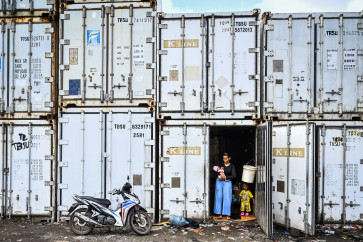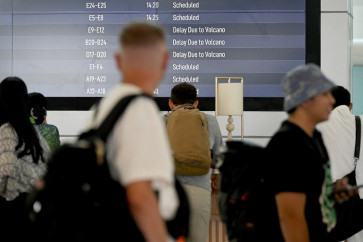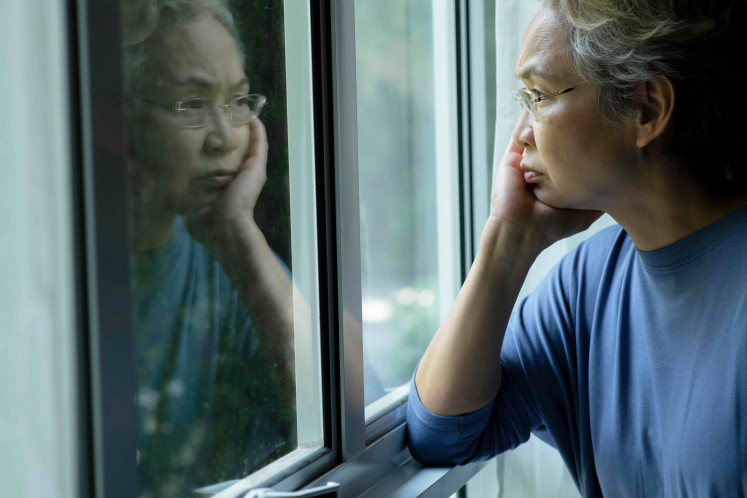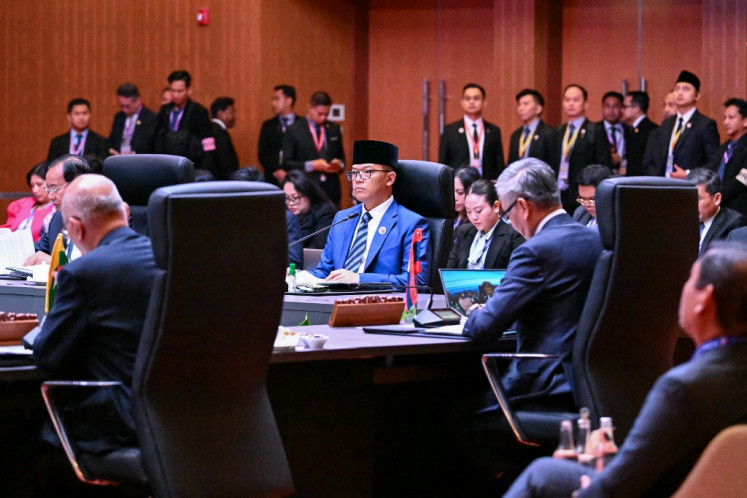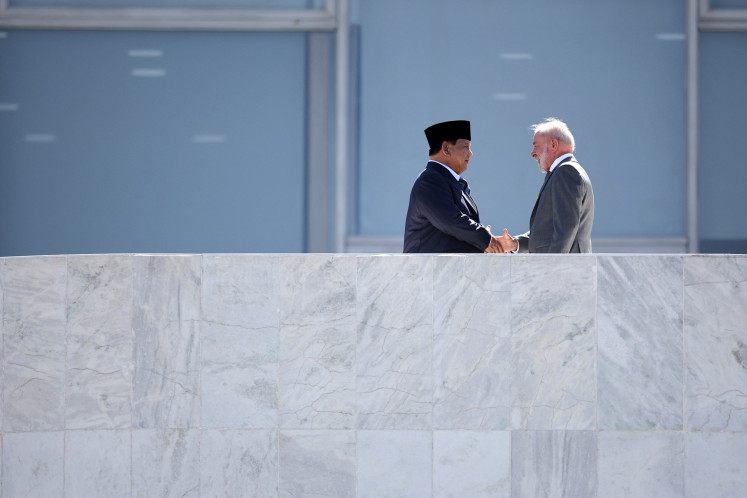Popular Reads
Top Results
Can't find what you're looking for?
View all search resultsPopular Reads
Top Results
Can't find what you're looking for?
View all search resultsHonesty crucial between patients, health workers during pandemic
Despite the best intentions, humans aren't always the most honest species.
Change text size
Gift Premium Articles
to Anyone
D
uring this pandemic, honesty is the best policy. Patients who have not fully disclosed their travel history, the state of their health or symptoms similar to those known to be related to COVID-19 have exposed medical workers to the virus, leading to bigger problems.
As the pandemic expands within communities and as the disease progresses, many medical workers are running low on personal protective equipment (PPE). Some hospitals are struggling with a drop in staff, as some have been required to self-isolate or have fallen ill. Several physicians and nurses have even died. Hospitals will soon be overwhelmed with patients they cannot treat. A patient who has lied or has not disclosed the whole truth will only to bring more damage to our overstretched healthcare system as it battles the disease across 34 provinces.
Among the latest health workers who have become victim to COVID-19 was Berkatnu Indrawan Janguk, a general practioner in Soewandhi General Hospital in Surabaya who passed away on April 27. He was believed to have contracted the virus from a patient without being aware of the patient’s medical status. Earlier 46 medical workers at Dr. Kariadi General Hospital in Semarang were infected after they reportedly treated patients who failed to reveal their travel history to coronavirus “red zones”. This shows how important honesty is.
As Central Java Governor Ganjar Pranowo said, the “unbelievable” infection of so many health workers in one hospital around the same time “[...] serves as a lesson for us that doctors, nurses and other health workers are very vulnerable”.
In other cities in this country, medical workers are facing the same risk, and of course safety protocols, such as wearing standard PPE for every medical worker in clinical and surgical settings, are non-negotiable. Protecting medical workers means protecting the community.
In clinical situations, for best results in diagnosis and treatment, the relationship between patient and medical worker should be built on mutual trust and honesty. Physicians realize that recording an accurate medical history to make a diagnosis relies on the provision of reliable information by patients and their families,
which in turn depends on effective communication between physicians and patients and their families.
Hospital management and health workers themselves should offer direct assurance that they are there to help, not to judge. This assurance can go a long way toward helping many patients open up and feel more comfortable in sharing everything, amid the pandemic and more generally. It all comes back to good interpersonal communication. Patients have to speak up, and clinicians need to listen.
Despite the best intentions, humans aren't always the most honest species. Both patients and medical workers are often challenged by complicated communication; patients withhold or lie about information that is crucial to the doctor-patient relationship and for effective treatment. Such untruths and manipulation of information can damage relationships, compromise clinical care and can increase the contagion rate of the virus.
From telling untruths to selective reporting and glossing over details, there are a lot of ways to skirt the truth. And it is likely to occur when the topic is sensitive or makes the patient uncomfortable in some way.
In the experience of health professionals, patients lie for a variety of reasons, such as to obtain prescriptions for their preferred drugs, to avoid incarceration or other undesired legal consequences of their actions (such as
in cases of substance abuse) or to ensure their insurance covers the hospital admission.
In clinical encounters, the main reason for patients to hide relevant information during this pandemic is to avoid social stigma.
Social stigma in the context of health is the negative association of a person or group of people who share certain characteristics and a specific disease. In a pandemic this may mean people are labeled, stereotyped, discriminated against, treated separately or made to experience a loss of status because of a perceived link with a disease.
The current COVID-19 pandemic has indeed provoked social stigma and discriminatory behavior against people of certain backgrounds, as well as anyone perceived to have been in contact with the virus.
When talking about COVID-19, certain language (e.g., suspected case, isolation, etc.) may have a negative connotation for people and fuel stigmatizing attitudes. This language can perpetuate existing negative stereotypes or assumptions, strengthen false associations between the disease and other factors and create widespread fear of those who have the disease. It probably shouldn't come as a surprise that people aren't always completely honest with their physicians or health workers.
It is important now for all parties is to focus on creating an environment that encourages honesty. Don’t let a fear of the virus turn into stigma against those who have it or are thought to have contracted it. Here, the government must take the lead, followed by the media and all citizens. The most crucial thing is to set a tone of tolerance, care, empathy and the capacity to fight social stigma, rejection and fear – even the stigma and fear of victims of COVID-19 who have died.
***
Orthopedic and traumatology resident, Airlangga University, RSUD Dr. Soetomo Hospital, Surabaya, graduate of Airlangga University Faculty of Medicine.



